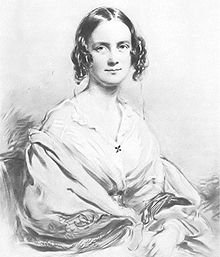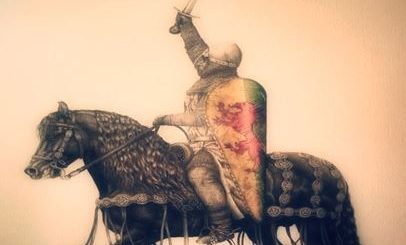12 Things to Know About Charles Darwin’s Life and Groundbreaking Theory

Charles Darwin facts | The English scientist whose theory of evolution was such a radical idea that he was considered a heretic by the clergy and some members from the scientific community
Charles Robert Darwin, born on February 12, 1809, is remembered for producing one of the most radical scientific theories and what may still be the most highly controversial theory to date: the Theory of Natural Selection.
Darwin, who was a geologist, biologist and naturalist, had significant accomplishments and a profound impact on science in general, influencing how we view the natural world.
Because of his accomplishments and the unique place he occupied in British society, Charles Darwin is well-remembered – perhaps as one of the most influential scientists in human history, along with the likes of Albert Einstein and fellow English scientist Isaac Newton.
Here are twelve major facts about Charles Darwin, one of the greatest minds of the modern era.
Charles Darwin quit medical school to pursue a career in natural science
Being a son of a prominent medical doctor, there was some sort of pressure on Darwin to follow in his father’s footsteps. Darwin even worked in the summer of 1825 as an apprentice for his father. However, the downside to that was his fear of blood. Regardless, Darwin still went ahead to enroll at the University of Edinburgh Medical School.
Besides his absolute disgust of surgery and the sight of blood, the young Darwin found lessons at the university to be anything but boring. In his second year, he broke his father’s heart when he announced his intention to quit medical school.
Charles Darwin was a divinity student at Cambridge University
Following a lackluster showing at Edinburgh Medical School, Darwin enrolled as a divinity student at Christ’s College (Cambridge University) as he and his father hoped he could salvage his education and become an ordained clergy.
Born into a deeply Christian home, Darwin developed a strong interest in natural theology. He was influenced by his cousin William Darwin Fox, who was by then a student at Christ’s College, and botany professor John Stevens Henslow. He also took a lot of interest in the works of English philosopher and clergyman William Paley (1743-1895), a scholar who like Fox and Henslow sought to use logical study of nature and reasoning to support the existence of God.
And so Darwin’s religious beliefs and creationist notions became even more cemented as he read Paley’s work that provided sound argument for creationism and a divine design in nature.
He was known to feast on strange foods

The Glutton Club that he formed at Cambridge had the goal of feasting on “birds and beasts, which were before unknown to human palate”.
While in school Charles Darwin is said to have formed the Gourmet Club, also known as the Glutton Club. Darwin and members of this club were known for having strong appetite for very strange foods. During his 5-year trip around the world, Darwin not only studied nature and exotic animals, he was also an avid consumer of those animals, dining on animals such as hawks, turtles, iguanas, ostrich, pumas, and armadillos. He even once stated that pumas tasted like veal.
Spent more than two decades gathering ample evidence for his theory of natural selection

Charles Darwin’s 1859 book titled The Origin of Species etched his name into history as the father of evolution. Far from what some people believe happened, Darwin did not get the so-called Eureka moment in the Galapagos Islands; rather his theory of natural selection took a great deal of time to form. He spent years gathering evidence to support what he knew would be met with strong opposition from the religious community and creationists.| Portrait by George Richmond
Perhaps afraid that his theory of natural selection would be met with scorn from the church and creationists, Darwin instead spent about two decades gathering strong evidence to support the theory. It has been stated that he began working on the theory in the late 1830s, shortly after arriving from his five-year trip around the world in 1836. Darwin is said to have feared that the same criticism that was meted out to his grandfather, Erasmus Darwin, would be directed towards him for going against creationism.
However, that all changed when he reviewed the work of his very close associate British naturalist Alfred Russel Wallace who had spent quite a number of years in the jungles of South America studying nature and exotic animals. Darwin was astonished to find out that his friend Wallace had almost identical theories as that of his. He therefore came to a conclusion that that the time was right for his theory of natural selection to be published. And so in a joint announcement with Russel Wallace, Darwin published his book titled On the Origin of Species on November 24, 1859.
He married his first cousin

Charles Darwin’s wife and first cousin – Emma Wedgwood
Charles Darwin was a very logical man, even when it came to issues pertaining to love and marriage. Before getting married to Emma Wedgwood, who was by the way his cousin, the British naturalist made a list of the pros and cons. In a column labeled “Marry”, Darwin listed all the benefits that could accrue from his marriage, including, in his own words, “children”, “constant companion… better than a dog anyhow”, and “someone to take care of house”. In the cons column, i.e. “Not Marry”, he listed the following: “freedom to go where one liked”, “conversation of clever men at clubs”, and “loss of time”.
Once his rudimentary cost-benefit analysis had been complete, he decided to marry Emma Wedgwood on January 29, 1839. He and his wife had 10 children, although three died before reaching the age of adulthood.
He shares the same birthday as America’s 16th President Abraham Lincoln

The English scientist Charles Darwin was born in a grand Georgian house near the River Severn in Shrewsbury, England | Portrait: Chalk drawing of the seven-year-old Charles Darwin in 1816, with a potted plant, by Ellen Sharples
Aside being men of profound intellectual gifts, Abraham Lincoln and Charles Darwin share another thing in common: both of them were born on February 12, 1809. However, the circumstances in which both men were born into were completely different. In the case of America’s 16th president, his birth place was in a small log cabin in the wilderness of Kentucky. Darwin, on the other hand, was born into a relatively affluent and well-respected family.
Charles Darwin was plagued by severe illness following his trip around the world

Five-year trip around the world proved invaluable in shaping his ideas about wildlife and evolution and natural selection. On the voyage, he collected and cataloged many plants and animal | Painted by Conrad Martens
Charles Darwin’s bitter years of illness began upon his return from his five-year trip abroad. The scientist typically experienced excruciating headaches, heart palpitations, bouts of nausea, and in some cases exhaustion. His illness was also worsened by the endless amount of hours he devoted to his work. It’s also been said that he suffered from depression due to the deaths of three of his children.
In any case, his illness remained with him until his final days on earth. Historians reason that his illness was perhaps as a result of a parasitic illness – known as Chagas disease – that he likely picked up on his trip abroad. The disease was also said to cause cardiac damage in some cases.

He grew up as a creationist and a Unitarian, however he later became an agnostic |Portrait by John Collier in the National Portrait Gallery, London.
The phrase “survival of the fittest” is wrongly credited to Charles Darwin
“The expression often used by Mr. Herbert Spencer of the survival of the fittest is more accurate, and is sometimes equally convenient,” writes Charles Darwin in his fifth edition of his book, “The Origin of Species” in 1869. That was Darwin’s first usage of the phrase “survival of the fittest”, borrowing the phrase from English philosopher Herbert Spencer to support his theory of natural selection. Rather than Darwin, Herbert Spencer was the scholar who coined the phrase, which he used in his 1864 “Principles of Biology” as he related his economic and sociological theories with Darwin’s theory.
Buried inside Westminster Abbey
Arguably the most famous cultural and historic building in all of England, Westminster Abbey is not just the venue for the coronation of British monarchs and royal weddings, but it also serves as the burial site for many distinguished and renowned men and women.
Charles Darwin joined the likes of Isaac Newton and John Herschel and was given the high honor of being buried inside Westminster. Following his death on April 19, 1882, the biologist’s friends and colleagues lobbied people in high places, seeking for the scientist to be buried inside the abbey. After several calls from many newspapers, the dean of the abbey finally gave his approval for Darwin to be buried in the abbey a week after his death.
Charles Darwin’s funeral was held on Wednesday 26 April and was attended by thousands of people, including his family members, friends, and many renowned scholars.
His face appeared on the British 10-Pound note for close to two decades

Darwin £10 note was withdrawn by the Bank of England on March 1, 2018. The note was replaced with one containing the image of Jane Austin, the famous 19th century author of classics like “Pride and Prejudice”.
For close to twenty years, Charles Darwin’s face appeared on the British 10-pound note. The note also had the image of HMS Beagle (the famed vessel that Darwin traveled on during his five-year trip around the world), flora and fauna, and a magnifying lens. Darwin’s 10-pound note was discontinued in 2018.
More Charles Darwin facts
- He was born in the county town of Shropshire, near the River Severn. The English naturalist and biologist spent about 27 years of his life in the town.
- He was the fifth of six children of his parents. His five siblings were: Marianne Darwin (1798-1858), Caroline Sarah Darwin (1800-1888), Susan Elizabeth Darwin (1803-1866), Erasmus Alvey Darwin (1804-1881), Emily Catherin Darwin (1810-1866).
- His parents were Robert Darwin and Susannah Darwin. His father Robert Darwin was a successful medical doctor and business financier. Robert Darwin was said to be a freethinker.
- Darwin was baptized in an Anglican church – St Chad’s Church, Shrewsbury – in November 1809.
- He and his older brother Erasmus had their early education at an Anglican Shrewsbury school.
- Charles Darwin’s grandfathers – Erasmus Darwin and Josiah Wedgwood – were renowned naturalists and abolitionists respectively.



























